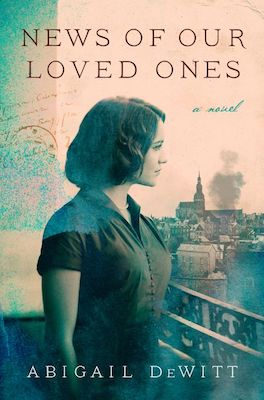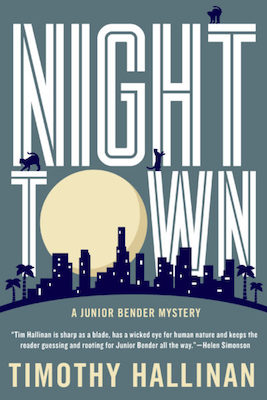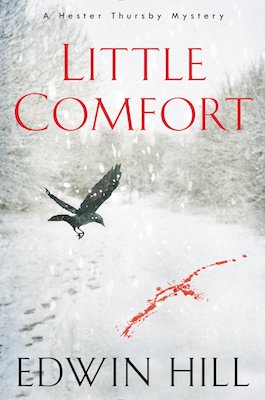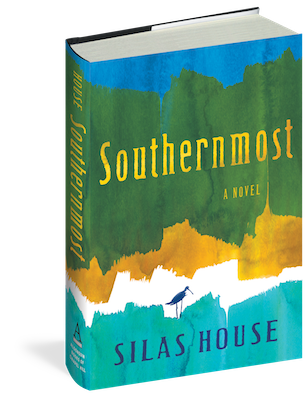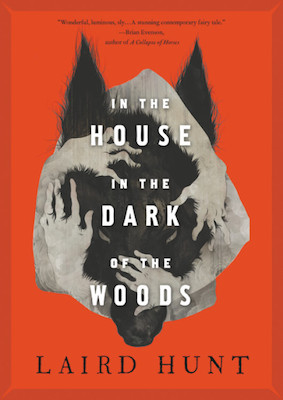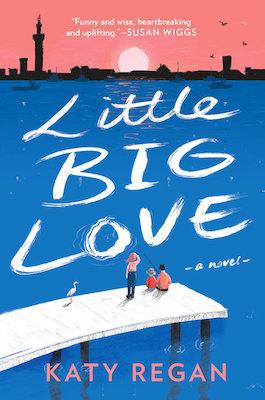Every month, the Writer’s Bone crew reviews or previews books we've read or want to read. This series may or may not also serve as a confessional for guilty pleasures and hipster novels only the brave would attempt. Feel free to share your own suggestions in the comments section or tweet us @WritersBone.
Bare Minimum Parenting: The Ultimate Guide to Not Quite Ruining Your Child by James Breakwell
Daniel Ford: In an era where parents are relentlessly driving their kids to assumed greatness, James Breakwell asks, “Can we just raise decent human beings and have some fun along the way?” Hear, hear! Oh, and you will have fun along the way. In fact, Breakwell may cause you to wet yourself. Just ask Sean Tuohy…
News of Our Loved Ones by Abigail DeWitt
Rebecca Weston: News of Our Loved Ones by Abigail DeWitt is a beautifully written novel told through the voices of different members of a French family living during World War II. DeWitt is interested in poetry, and this comes across in her efficient, lyrical prose. The story is partly based on DeWitt’s own family history and explores themes of war and its lasting effects, sexuality, family relationships, and the gray areas of morality and human existence. I was in awe of this story and was thrilled to get the chance to talk with Abigail about it. Click below to listen to our interview!
Alice Isn't Dead by Joseph Fink
Daniel: While I haven’t been a dedicated listener of Joseph Fink’s podcasts Welcome to Night Vale and Alice Isn’t Dead, I’ve always been impressed with the shows’ ambition and execution. Fans of both shows will not be surprised to find out that Fink can really write. Alice Isn't Dead, the recently published novel based on the eponymous podcast, is an excellent thriller, featuring flesh-eating monsters (or are they?), that judiciously weaves in contemporary themes. We experience the world Fink has built through Keisha Taylor, a heartbroken truck driver who holds out hope that her wife Alice is still missing and not presumed dead. Keisha is riddled with anxiety and deep heartache, but with a spine of steel and a determination that upends both sides of a conflict going on right under people’s noses. Fink puts the pedal down on the action from the first chapter and never lets up.
Wit's End: What Wit is, How it Works, and Why We Need It by James Geary
Daniel: Wit involves a lot more than a snappy comeback. You’ll learn why that is in James Geary’s fun and informative new book Wit's End: What Wit is, How it Works, and Why We Need It. His writing process for this project also offers an additional lesson for writers. During a recent podcast chat (which goes live tomorrow on Friday Morning Coffee), Geary said that he was stuck until he spoke to his son’s acting class about the subject he was exploring. That sparked the idea to write each chapter in a different form (lines of dialogue, a rap song, etc.). Sometimes structure can amp up your creativity instead of hindering it!
Nighttown by Timothy Hallinan
Daniel: I’ll admit I picked up Timothy Hallinan’s new novel Nighttown at Book Expo this past May because of its beautiful cover. However, Hallinan’s engaging prose and his shadowy literary PI Junior Bender kept me turning the pages. Junior gets offered 50 grand by an nameless woman in an orange to break into an elderly woman’s house and steal a doll. To no one’s surprise, the job leads Bender down some pretty dark corners. Speaking of, any book that begins with an exploration into the nature of darkness and includes the line, “Nighttime, in a manner of speaking, is my zip code,” automatically gets added to our radar.
Little Comfort by Edwin Hill
Joseph Passanisi: This is the perfect time of year to read Edwin Hill's Little Comfort set during December in Somerville, Massachusetts and New Hampshire. Hester Thursby, a Harvard librarian, has a side gig finding missing persons, and her latest job quickly grows dark and dangerous. This debut novel is packed with complex characters and gives the reader a complete experience through multiple points of view. The reader will feel all the emotions until the last page. Hill's writing is full of life. Read this book now because you're going to want to be ready for the next part in this series.
Southernmost by Silas House
Rebecca: The night of the storm, Asher’s life forever alters course. Asher Sharp is a Tennessee preacher with deeply conservative values. But when a gay couple helps Asher the night of the flood, Asher’s impulse is to open his home and his church to them. This impulse forces Asher to question his church, his faith, and his marriage, and to confront his rejection of his own brother years earlier. The only thing that Asher knows for sure is that he loves his son, Justin. When Asher’s wife tries to keep Justin from him, Asher takes his son and skips town. The pair sets out on a road trip, as Asher wrestles with religion, spirituality, law, morality, and where holiness can be found. The answer is often outdoors, and House describes nature with achingly beautiful imagery. But the inevitable pulls on Asher and readers alike: his story won’t end well.
In the House in the Dark of the Woods by Laird Hunt
Daniel: I had to sit with Laird Hunt’s latest book In the House in the Dark of the Woods for a bit after I read it (and not just because some scenes are super unsettling). Hunt immerses the reader in a deeply suspenseful colonial American setting, where a Puritan woman goes missing after collecting berries in the woods for her husband and child. Be prepared to have this line rattle in your head after you finish reading: "Once upon a time there was and there wasn't a woman who went to the woods." Also, I may never look at robins the same way again. Keep your ears open for my podcast chat with the author coming soon!
These Truths by Jill Lepore
Daniel: There’s no better writer of American history right now than Jill Lepore. Her books The Name of War, New York Burning, and The Secret History of Wonder Women are all essential reading. She ups the ante with These Truths, a one-volume history of the United States that investigates the “truths” that are woven into this country’s past. The prologue alone might be the best thing written on the American experience in any era. “The past is an inheritance, a gift and a burden,” Lepore writes. “It can’t be shirked. You carry it everywhere. There’s nothing for it but to get to know it.”
Little Big Love by Katy Regan
Rachel Tyner: A really cute, charming story of a 10-year-old boy on a mission to find his absent father. As he recruits his best friend, his mom, and everyone he meets along the way, he uncovers more to the story than he was expecting. I haven't gotten to the end yet, so I don't know quite know what happens, but I am really enjoying peeling back the layers of the different characters. A funny and heartfelt read about the lengths parents will go to protect their children, and the lengths children will go to protect their parents.
A Place for Us by Fatima Farheen Mirza
Daniel: Fatima Farheen Mirza’s debut might be the most beautiful I’ve read this year, and the more I think about it, it’s probably the most beautiful story I’ve read in some time. A Place for Us features wonderful characters, heartfelt prose, and the perfect structure for a story like this. This one will stay with me for some time.
Modern Lovers by Emma Straub
Daniel: I’ve been a fan of Emma Straub’s efforts as a passionate bookseller since she opened Books Are Magic in Brooklyn, N.Y., but I’m ashamed I had never read one of her novels until recently. I started my dive into her work with Modern Lovers, a tale that features former bandmates navigating adulthood, a New York City restaurant, crackling dialogue that makes your sides hurt and your heart pump, and a tender, realistic look at love, friendship, and family. Did I mention food and music? If this novel had been set in Queens, it would have been perfect, but I can easily set my New York allegiances aside to thoroughly enjoy prose this engaging and well written.
Cherry by Nico Walker
Taylor Krajewski: Cherry is a semi-autobiographical novel written by Nico Walker, who is currently serving jail time in Kentucky. The novel is a very dark, gritty depiction of war, PTSD, and addiction. The narrator's voice reminded me a lot of Holden Caulfield's. I highly recommend reading this Buzzfeed article before diving into this one. The author truly lived his story, and I'm not sure where the line between fact and fiction is.
Winter's Bone by Daniel Woodrell
Daniel: Author Tana French mentioned Daniel Woodrell’s Winter’s Bone during our recent chat, and I finally got around to re-reading the book that partly inspired our podcast’s name. In just over 200 pages, Woodrell paints a vivid backwoods tapestry populated by heartbreakingly conflicted characters. The main character Ree Dolly, a 16-year-old keeping her family together with not much else but squirrel meat and guile, takes punch after punch (some literal) while hunting for her father after he goes missing. There’s a quietness to this novel, even when the family is threatened with eviction (and worse). I’d say it makes for the perfect cold weather read, but there may not be enough blankets or alcohol to the heat the chill you’ll get after reading this. A special thank you to Papercuts J.P. owner Kate Layte for gifting us a first edition!
Author’s Corner
By Daniel Paisner, author of A Single Happened Thing
I've gone down the rabbit hole of late. When John Updike died nearly ten years ago, it felt to me like a light had gone out in American fiction. His sweet, spare prose was like a beacon, as I tried to make my way as a writer. His poetry, his criticism, his wistful musings on baseball and Boston and sex and music were like...well, music. Oh, how I wanted to write like this man, to see and taste and know the world like this man.
Updike wasn't just one of our finest literary voices, he was the whole damn chorus, and his death sent me to the bookshelf to reread Rabbit, Run, which had been on my parents' bookshelf throughout my childhood. I had forgotten how filthy it was, and it gave me pause (a little bit) to think that this was what my parents were reading in the swingin' '60s. To honor Updike, and to keep his work alive in my mind, I decided to revisit the Rabbit quartet—Rabbit Redux, Rabbit is Rich, Rabbit at Rest—and, happily, I spotted a two-volume paperback set that had recently been reissued by Ballantine Books as The Rabbit Novels, containing all four novels. Each volume was like a small doorstop, which might have signaled that the books would prove to be too much, all at once.
The writing is fresh, raw, precise...contemporary as hell. But the books are dense, and meandering, and Updike's Rabbit Angstrom offers such a complex window onto what used to be America's heart and soul (and still is, in some parts of the country) that I'd have to set the books aside for a while and consider where we've been as a country, where we're going. And so what started out as a marathon has morphed into a series of sprints. I've been treating myself to the Rabbit novels at the rate of one every other year or so, and I'm now nearly through Rabbit at Rest and it's starting to feel to me like the end of something—which, I guess, was Updike's point all along.
Paisner’s The Ball: Mark McGwire's 70th Home Run Ball and the Marketing of the American Dream and Mourning Wood are being reissued in December.
NovelClass
Dave Pezza and special guest host Eric Bennett (A Big Enough Lie) discuss Sing, Unburied, Sing by Jesmyn Ward.


